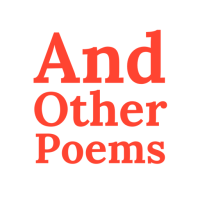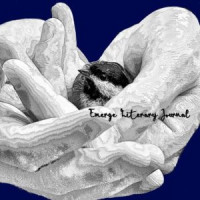A penny a word - you pay

By G. Miki Hayden
Instructor at Writer's Digest University online and private writing coach
firstwriter.com – Saturday September 28, 2019
GMH: What common style mistake bugs you the most?
Phyllis Grann, the first woman CEO of a major publishing firm: The use of unnecessary words.
Writers being paid by the word say that instead of “bang,” they might write “bang, bang, bang” for gunshots. That’s really a joke—sort of. While often the length of a story or article is fixed by guidelines and a flat fee is paid, sometimes writers do get paid by the word, even today. But any writer imagining that adding unnecessary words to a piece is a good idea isn’t the writer who is going to sell the story or article. And that’s the long of way of saying that the best writing is economical writing. How many words should the story or article be? As many as telling the story takes, but not a single word more.
Instead of being paid a penny a word, five cents a word, or a dollar a word—and all these are legitimate current pay scales, to be sure—imagine that you will have to pay for every word you put on the page. Use what you need, but be a little bit parsimonious in your word use. Like every good householder or starving artist, consider your budget.
Keep in mind, too, that most publishers aren’t looking for a first book that runs 160,000 words, because they have to account for printing costs, paper prices, and the storage charge for maintaining inventory in a warehouse somewhere. Thus the words allotted to a just-hatched author won’t be unlimited.
And if you’re seeking to market pieces to a magazine or newspaper, start on the abbreviated side in that realm as well. Try placing a letter to the editor, then sell small fillers until the editors know your name and see that you have some command of the language along with a few ideas worth setting into type.
As for your short story lengths, make your short fiction reasonably short. An editor trying to fill a magazine with a variety of pieces for an issue isn’t really likely to buy a 10,000 word story—again, especially from an author whose name isn’t a draw.
So when counting words in a work, less may actually be more, but, really, use all the words that you need in order to write the piece optimally. As a matter of style, though, ditch the words not required to express the ideas, and be properly clear and rhythmical while you’re at it.
Here are some examples:
Extra words: But I wanted to get an idea of the lay of the land.
Trimmed: But I wanted to get the lay of the land.
As you write, as well as when you edit your own writing, you need to stay alert for words that aren’t required and to cull them. This is still another automatic mental habit you want to form as a writer.
Extra words: “We are waiting for only two more people at our table, so why don't you have a seat?”
Trimmed: “We’re waiting for only two more, so please join us.”
Express the idea. And when writing fiction, express the idea as the character would. But rarely will you need to go on at great length.
Extra words: His headlights reflecting off the wet pavement made it difficult to spot all the potholes, and his unmarked department vehicle bounced uncomfortably along.
Trimmed: His unmarked vehicle bounced along the wet blacktop, making him curse.
One thing we want to think about when writing is how much description a bit of business actually deserves. How important, for instance, is the setting? How important are the details? If the setting and details aren’t important, then don’t include a lot of extras. We’re living in an age of impatient readers. Cut back on description; sketch in background material.
On the other hand, you might want to include very specific details, such as the name of a street or an area of the city, even the make of the car. Details help to fill in the picture and to add color, while not actually taking that many words. Do we think the writer who created the above knows Detroit? No. Specific details will make our readers trust us more.
Pithy but with detail: His unmarked DPD vehicle bounced over the wet blacktop alongside Kronk Recreation Center, making him curse.
Where’s the Beef?
In addition to being efficient in wording, let’s try packing both our articles and our fiction with interesting information. If you don’t have that, even in fiction, you don’t have anything. You have air. If you give us only air (a lot of nothing), at least give us blank pages where we can rest our eyes. Don’t bother us with the dinning nuisance of more words in an overly wordy universe.
Too gabby: I’m Finally Out of School—Now What? is designed to provide down-to-earth, helpful advice as you begin this next phase of your life. Many of the subjects we’ll cover are things most people out in the world take for granted, but you might not yet have encountered the reality of having to deal with such everyday circumstances.
Cut to the chase: I’m Finally Out of School—Now What? will cover many aspects of everyday life that people living on their own for the first time will need to understand.
Don’t Equivocate
The best writing is forceful and direct, but often writers are so eager to pinpoint an exact concept—90 percent of this, but 10 percent of that—that they water down the sentence by equivocating.
Wishy washy: He had seemingly disappeared into thin air.
Direct: He had disappeared into thin air.
The reader knows he didn’t actually disappear into thin air, but that something untoward probably happened to him. Yes, I just equivocated by the use of the word “probably,” and that’s because he might have engineered his own disappearance. I’m not entirely against equivocation, you see, but I want to bring the consideration to mind.
Often we use extra words to waffle on one point or another. We might ask ourselves if we really should introduce that wiggle room for a statement, diminishing the strength of the idea and the sentence itself.
About the Author
G. Miki Hayden is a short story Edgar winner. She teaches a mystery writing and a thriller writing and other writing classes at Writer's Digest online university. The third edition of her Writing the Mystery is available through Amazon and other good bookshops. She is also the author of The Naked Writer, a comprehensive, easy-to-read style and composition guide for all levels of writers.
Miki's most recent novel out is Respiration, the third book in her Rebirth Series. The New York Times gave her Pacific Empire a rave and listed it on that year's Summer Reading List. Miki is a short story Edgar winner for "The Maids," about the poisoning of French slave holders in Haiti.
"Holder, Oklahoma Senior Police Officer Aaron Clement is out for justice above all, even if he irritates the local hierarchy. Hayden in Dry Bones gives us nothing-barred investigation and plenty of nitty-gritty police procedure—which makes for a real page turner." — Marianna Ramondetta, author of The Barber from Palermo




 Should You Track Word Count While Writing a Novel? Yes, No, and Maybe So
Should You Track Word Count While Writing a Novel? Yes, No, and Maybe So A Word, Please: Seven deadly adverbs to avoid in your writing
A Word, Please: Seven deadly adverbs to avoid in your writing Thoughts on writer’s block and other first word problems
Thoughts on writer’s block and other first word problems What I learned from writing over 800,000 words in two years
What I learned from writing over 800,000 words in two years Award-Winning Novelist Cecilia Galante Shares The Realities Of Writing As A Profession
Award-Winning Novelist Cecilia Galante Shares The Realities Of Writing As A Profession Presenting your poetry
Presenting your poetry Promotional tips
Promotional tips What's in a name? Giving birth to your characters
What's in a name? Giving birth to your characters How I got a literary agent - An interview with author James R. Larson
How I got a literary agent - An interview with author James R. Larson How I got a literary agent - An interview with author Adrienne Schwartz
How I got a literary agent - An interview with author Adrienne Schwartz Winning writing competitions
Winning writing competitions firstwriter.com subscriber wins Ruth Rendell Short Story Competition
firstwriter.com subscriber wins Ruth Rendell Short Story Competition How I got my book published - An interview with author, Stephen Nuttall
How I got my book published - An interview with author, Stephen Nuttall New Literary Agent Listing: Gabrielle Demblon
New Literary Agent Listing: Gabrielle Demblon Reading Force is delighted to welcome submissions from adults, children and young people to its 2025 Memoir Writing Competition
Reading Force is delighted to welcome submissions from adults, children and young people to its 2025 Memoir Writing Competition New Publisher Listing: Cicada
New Publisher Listing: Cicada Calling all aspiring authors! Here's your chance to win a one-to-one session with a literary agent - plus £1,500
Calling all aspiring authors! Here's your chance to win a one-to-one session with a literary agent - plus £1,500 New prize for translated poetry aims to tap into boom for international-language writing
New prize for translated poetry aims to tap into boom for international-language writing New Literary Agent Listing: Kaylyn Aldridge
New Literary Agent Listing: Kaylyn Aldridge TikTok parent ByteDance is shutting down its short-lived book publisher
TikTok parent ByteDance is shutting down its short-lived book publisher New Magazine Listing: And Other Poems
New Magazine Listing: And Other Poems New Literary Agent Listing: Helen Lane
New Literary Agent Listing: Helen Lane UK audiobook revenue up by almost a third last year
UK audiobook revenue up by almost a third last year New Publisher Listing: Radio Society of Great Britain
New Publisher Listing: Radio Society of Great Britain New Magazine Listing: Emerge Literary Journal
New Magazine Listing: Emerge Literary Journal New Literary Agency Listing: Ghosh Literary
New Literary Agency Listing: Ghosh Literary New Publisher Listing: Hardie Grant
New Publisher Listing: Hardie Grant
